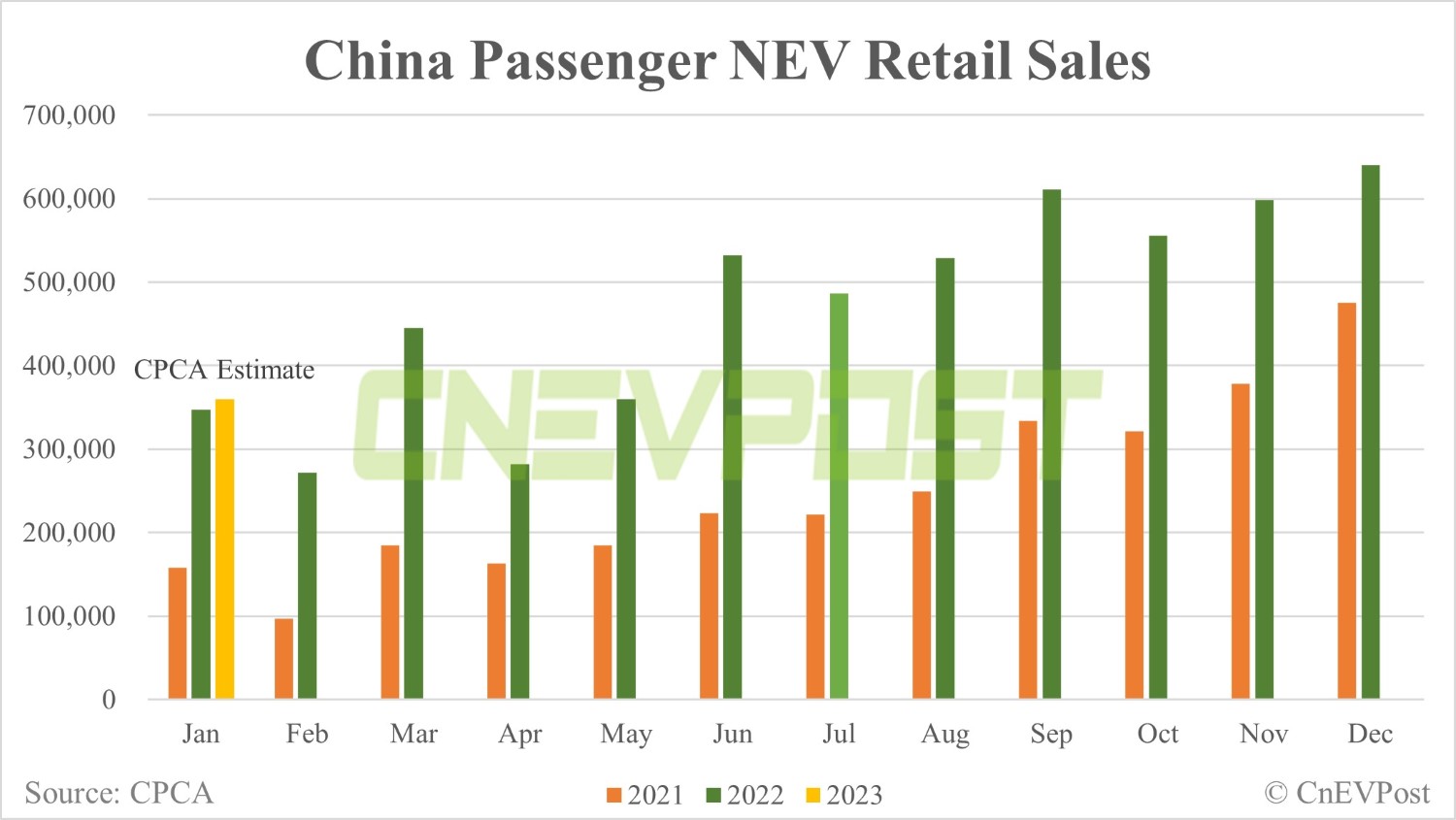China EV stocks are up an average of 20 percent year-to-date but have underperformed China tech ADRs since December, likely due to investor concerns about weak first-quarter sales and increased competition, according to Edison Yu's team.

January is typically a lower month for auto sales in China, as it is affected by seasonal factors including the Chinese New Year holiday. In a research note sent to investors today, Deutsche Bank analyst Edison Yu's team provided their take on the Chinese electric vehicle (EV) market this month.
At the industry level, the China Passenger Car Association (CPCA) is expecting China's retail vehicle sales to be 1.36 million units in January, with new energy vehicles (NEVs) contributing 360,000 units, down 44 percent month-on-month while up 2 percent year-on-year, the team noted.
"This is largely consistent with our ongoing view and provides a reasonable path to 1Q23 declining around 20-25% QoQ," the note wrote.
The CPCA, which released these figures on January 28, mentioned that auto dealers' sales pace was disrupted in January and performed weaker than normal seasonal levels due to the impact of the Covid infection wave and the early timing of the Chinese New Year.
The NEV market is facing volatility in the short term, the CPCA said, adding that consumers are experiencing some wait-and-see sentiment as some manufacturers have made significant price adjustments.

In terms of stock market performance, US-listed EV makers including Nio (NYSE: NIO), Xpeng (NYSE: XPEV) and Li Auto (NASDAQ: LI) are up an average of 20 percent so far this year, but they have underperformed significantly below the broader Chinese tech ADRs, Yu's team noted.
Since early December, the KraneShares CSI China Internet ETF (NYSEARCA: KWEB) has outperformed China EV stocks by 18 percentage points, the team added.
"We attribute this to growing fear about weak 1Q sales (previewed in our earlier report) and intensifying EV competition," Yu's team said.
This is in contrast to tech ADRs, which are benefiting from a reversal in regulatory policies and relatively benign competitive dynamics, according to the team.

In addition, the team commented on recent moves in the Chinese EV industry and by car companies, saying the recent round of big price cuts by Tesla, Xpeng, AITO and local government stimulus measures have helped partially offset the phase-out of state subsidies.
"In relation, recent comments from the central government hint at more openness to bringing back the subsidy, therefore, we do think the probability of policy action has increased potentially targeting 2Q23 implementation," the team added.
In terms of the EV makers' moves, Li Auto has set out a bolder vision of becoming a leader in artificial intelligence and autonomous driving by the end of the decade. Yu's team believes this suggests that Li Auto's big ramp-up in R&D spending this year is very intentional and will remain elevated going forward.
Nio confirmed plans to launch a shooting brake version of the ET5 sedan in Europe later this year, and also release its smartphone in the third quarter and the start of internal testing in the second quarter, the team noted.
On the operational front, Nio reassigned its head of vehicle engineering and disclosed that its battery swap station reached a record 55,000 swaps in one day on January 15.
Xpeng is reportedly being more aggressive this year, with two new models and three product updates planned. Yu's team believes this means management is preparing to fight more aggressively with BYD for volume share in the lower and mid-range models.
In a January 28 report, LatePost said Xpeng chairman and CEO He Xiaopeng said in an internal all-staff letter that the company will release two new models and revamp three existing older models in 2023, with a goal of delivering 200,000 vehicles for the year.
Yu's team does not interpret this as guidance and expects the consensus expectation to remain significantly lower.
In addition, Xpeng has just confirmed former Great Wall Motor executive Wang Fengying as president. Yu's team's initial read leans slightly positive, saying she will bring on more practical changes that emphasize product positioning and sales.
That could help Xpeng win back more volume share, and recent strategic changes already seem to reflect her influence, the team said.



